Local HVAC Services and Solutions for Total Indoor Air Comfort
Posted on by WestAIR Heating & Cooling
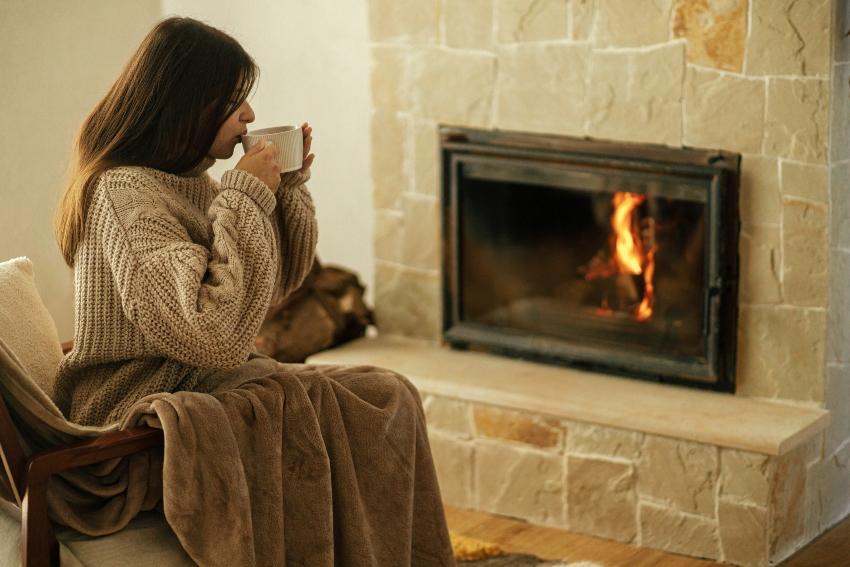
When it comes to weather, in Minnesota, we live in a state of extremes. That’s why we rely on our homes to provide an oasis of clean air and cozy temperatures all year long. And WestAIR Heating & Cooling has you covered. Read on to learn more about the HVAC services and solutions we offer as your local source for total indoor air comfort.
Home Heating Solutions
The snowy and bitterly cold winters make reliable, efficient heating systems vital to our comfort, health, and safety. WestAIR offers a full range of solutions, and our expert technicians will help you find the perfect fit for your home and provide professional installation.
- High-efficiency furnaces warm your entire home in the most cost-effective way, leading to lower energy bills. Additionally, qualifying systems allow you to claim a federal tax credit.
- Radiant floor heating provide heat from the ground up instead of via forced air through vents, which eliminates air loss in ductwork. This also means dust and allergens aren’t being blown into the home and decreasing air quality.
- Gas fireplaces allow you to add beauty as well as comfort. Our experienced technicians will help you choose the right model, style, and finishing touches to optimize performance and ultimately boost your home’s value.
- Unit/garage heaters let you use your garage for more than parking. By keeping the space warm, it can be used for year-round storage, social and recreational activities, hobbies, and more.
Home Cooling Solutions
While our air is extremely cold and dry, the summers are full of heat and humidity. But don’t worry—we provide the same level of experience and expertise when it comes to home cooling solutions.
- High-efficiency air conditioning (A/C) systems deliver cost-effective cooling while also helping maintain proper humidity levels. And just like the furnaces mentioned above, many will qualify you for a federal tax credit.
- Ductless mini-split A/C systems require no ductwork, making them ideal for homes/spaces where adding ducts is impractical or too expensive. They can also provide heating as well as cooling.
HVAC Efficiency and Indoor Air Quality Solutions
Indoor air quality (IAQ) affects comfort as well as overall health. Rely on WestAIR to help ensure the air inside your home is both clean and cozy.
- Air exchangers help remove stale, unhealthy indoor air while simultaneously providing fresh, pre-filtered outdoor air.
- Air cleaners do just what the name implies: They clean the air by trapping harmful airborne particles before they can pollute the home and be breathed in by you and your loved ones.
- Whole house humidifiers maintain relative humidity levels, helping avoid dry-air issues such as dry skin, cracking/warping of furniture and wood, and inefficient heating.
- Programmable/setback thermostats allow you to pre-set temperature and humidity settings for multiple days. This allows you to maintain cost-effective comfort without constantly having to adjust the thermostat.
- Automatic zoning systems separate your home into zones that can be individually controlled. That way, you don’t have to waste energy and money heating/cooling areas that are rarely used.
- Ultraviolet (UV) light air purification systems work in conjunction with your current HVAC to eliminate viruses, bacteria, mold, and other harmful airborne pathogens for improved IAQ.
HVAC Maintenance Services
As your local source for all things HVAC, WestAIR also provides a full range of professional maintenance services:
Your home should be a private escape from the extremes of Minnesota weather. We’re here to help make the best decision for you and your home, as well as ensure your systems run at peak performance and efficiency.
Contact WestAIR today to learn more about our HVAC services and solutions for total indoor air comfort.
This entry was posted in AC,Air Cleaners and Purifiers,Air Conditioning,Cooling,Duct Cleaning,Energy Savings,Furnace,Health Tips,Heating,Humidifier,Humidity,HVAC Maintenance,Indoor Air Quality,Repairs,Tips,Winter and tagged Furnace, Heating, Home Cooling Solutions, Home Heating Solutions, HVAC Services, HVAC Solutions, Indoor air quality, Service, Thermostat, Tips & advice, Total Indoor Air Comfort, WestAIR, WestAIR Heating & Cooling, WestAIR Services
Fall Maintenance Checklist
Posted on by WestAIR Heating & Cooling
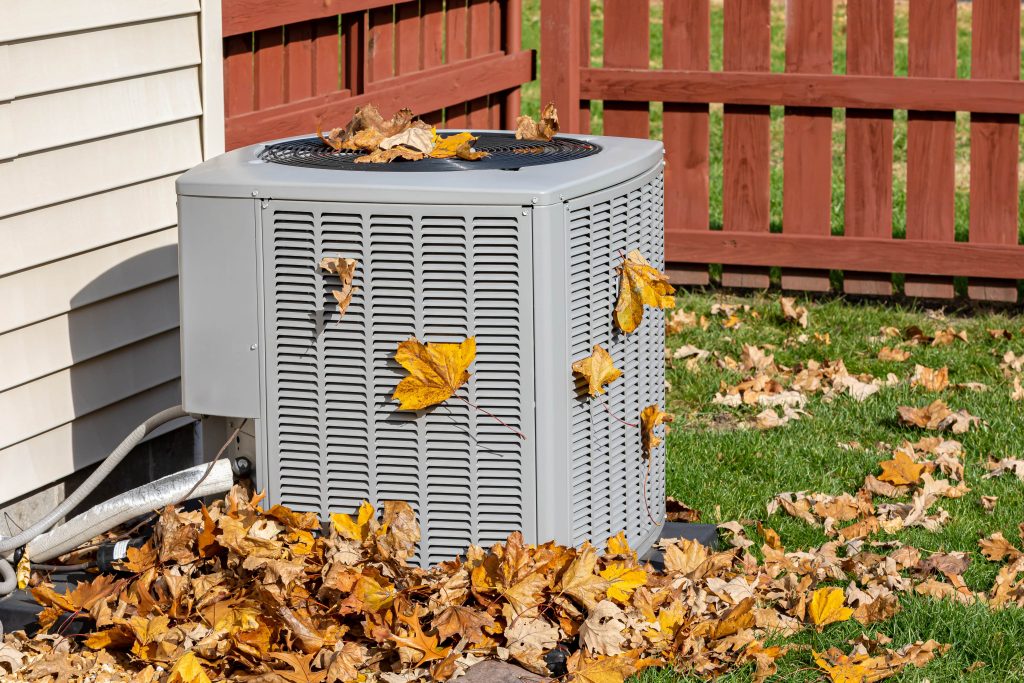
Fall is in the air and sweater weather is upon us. As you prepare your house with fall decorations like signs, pumpkins, and, of course, autumn scented candles, you may want to consider putting a few other things on your fall to-do list. Follow along in our blog to learn more about what you should put on your fall maintenance checklist.
Debris-Free AC and Heating
As you think about turning off your air conditioner and opening those windows, don’t forget about cleaning your HVAC unit for wintertime. The weather may be getting cooler, but you sure don’t need a broken furnace over the winter. Debris such as dust and pests can build up in your ductwork. This type of debris can be hazardous to you and to your home. So, get your ducts cleaned out for the start of winter. The same goes for your air conditioning. Unwanted debris could clog coils and damage your AC.
Check Your Air Filters
It’s true, you will be opening your windows more as the weather gets cooler, but once the snow starts to hit the ground, it’s time to turn the heat on. Make sure you are changing your air filters regularly. Changing your air filter helps keep a cleaner home, helps your health, it improves your HVAC system, and produces fresh indoor air.
Air Duct Cleaning
Get your cleaning gloves ready because it’s time to shine those air ducts. Your ducts need a good cleaning because the amount of time you are spending at home inside will increase. It will also help you to save energy in the long run. An air duct cleaning will help combat allergies and asthma, and it will help fight off any other sicknesses. If you don’t think you can clean your air ducts yourself, the professionals at West AIR Heating & Cooling are here to help.
Schedule a Fall Maintenance Visit
As summer comes to an end and you start thinking about all the fun things you are going to do in the next coming months, don’t forget about your annual fall cleaning. Checking your air filters, cleaning debris, and air duct cleaning are some of the things to make sure to have on your fall maintenance checklist. Contact WestAIR Heating & Cooling for all your fall maintenance needs.
This entry was posted in AC,Air Conditioning,Cooling,Duct Cleaning,Heating and tagged Cooling, Duct cleaning, Heating, Indoor air quality, WestAIR Heating & Cooling
Benefits of a Mini-Split AC
Posted on by WestAIR Heating & Cooling
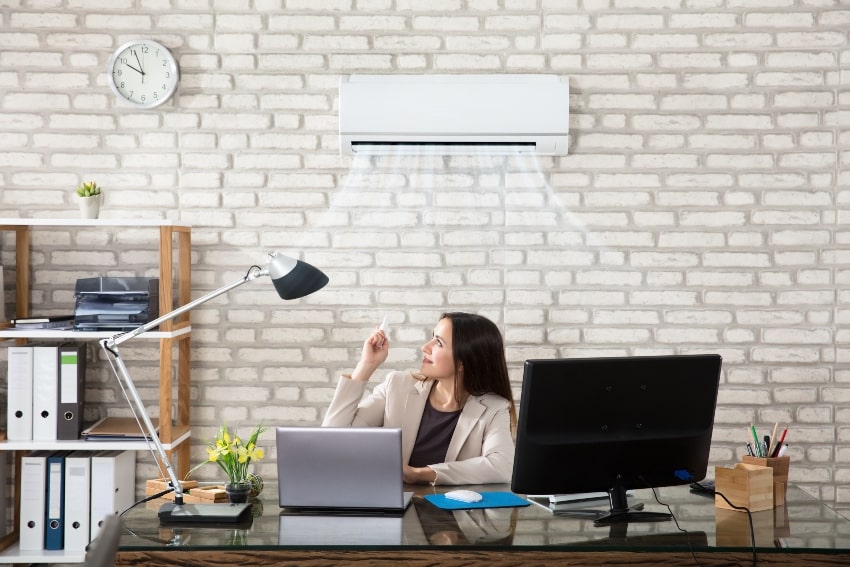
We should never take the air conditioning for granted. It helps to cool us down on those hot summer days, it provides better air quality for us, and it even helps us sleep better. There is more than just one cooling system. In fact, there are 8 different types, but the ductless mini-split air conditioner may be the best option if you’re thinking about an upgrade. Keep reading to learn the benefits of a mini-split AC and why it might be the best choice for your home, warehouse office, or garage.
Environmentally Smart
In today’s world, everyone is trying to be environmentally smart, from buying locally grown food to using more ecofriendly products in their households. When you invest in a ductless mini-split, you are being more energy efficient and reducing consumption. Some forced air systems can often be uneconomical because the ductwork can have tears, gaps, and other issues causing cooling loss.
No Ductwork Needed
Many older homes do not contain ductwork. This makes it nearly impossible to have central air in your household. Therefore, you may need mini-splits installed in your house. This may be seen as an advantage to some though. Ductwork can often become pricey and complex. When it comes to cooling and installing air into your older home, ductless mini-splits are the number one choice.
Budget Friendly
In today’s society, if you are trying to be frugal, we would definitely recommend having ductless mini-splits through-out your house. Mini-splits cost less than installing whole home ductwork. They also are energy efficient, and require less maintenance than your average window unit. You will typically find yourself paying between $4,000 and $6,000 to get a single head ductless mini-split installed. Multi head systems range from $6,000-$10,000 depending on the design and sizing. Looking for a company to install a ductless air conditioner in your house, garage, or warehouse office? Schedule a service with WestAIR Heating & Cooling today.
Health Conscious
The June flowers are still in bloom, so that means lots of itchy eyes, sneezing, and coughing. Ductless mini-splits lower your risk of breathing in contaminants in the air, help balance out humidity in the air, and there won’t be any ductwork toxins like pests, insect droppings, dust, and bacteria. Ductless mini-splits will transfer clean air directly in and out of your house.
Whether you’re working hard to fix your car in the garage or sending emails in your home office, you should be keeping cool, saving money, and breathing better air. Ductless mini-splits are effective, budget friendly, and high quality units. If you are looking to have one installed, contact our professionals at WestAIR heating & Cooling today.
This entry was posted in AC,Air Conditioning,Cooling and tagged Air conditioner, air conditioning, budget friendly, Cooling, Mini-split
Repair or Replace: 6 Signs You Need a New Air Conditioner
Posted on by WestAIR Heating & Cooling
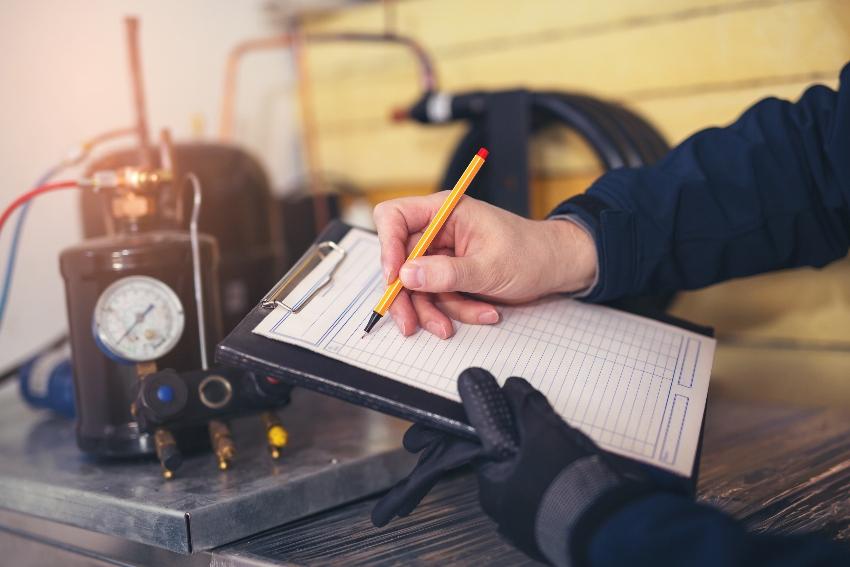
The weather is heating up here in Minnesota. Have you given your cooling system a test run yet? Doing so allows you to address any issues before the hot and humid summer days arrive. But how will you know if you need a repair or a replacement? Read on to learn about six signs you need a new air conditioner.
Frequent Repairs and Old Age
According to the U.S. Department of Energy (DOE), central air conditioners typically last about 15-20 years. And while occasional repairs are to be expected, having to do so frequently means you likely need a replacement. If your AC is around 15 years old and/or needs multiple service calls during the cooling season, it may be time to forget the repair bills and invest in a new cooling system.
Strange Odors and/or Sounds
Your AC shouldn’t be silent, but be on alert for certain noises that point to a problem:
- Loud grinding, squealing, or scraping noises could indicate a faulty belt, which can damage other parts if unaddressed.
- Frequent cycling (system turning on/off) could be caused by an improperly sized unit, a leaky ventilation system, or issues with the evaporator coils.
Additionally, the air pushed out by the system should not offend your nostrils. Don’t ignore strange odors when your AC is on:
- Burning smells may be due to burned-out wiring or other issues with the unit’s internal pieces, which could lead to an electrical fire.
- Foul, rotten egg smells could indicate a gas leak that poses a serious health and safety hazard for you and your family.
- Musty smells could mean moisture is escaping into your ductwork and creating health risks.
If you notice any of these issues, contact WestAIR ASAP to investigate and resolve the issue to keep your household safe.
Moisture Buildup On/Around Condenser Unit
Your AC will naturally produce some condensation, but liquids should never leak from the unit. Pooling water may be caused by a blocked or busted condensation tube and is a less serious issue. However, the refrigerant the system uses to cool the air is poisonous. Contact our expert HVAC technicians immediately if you notice any liquids on or around the condenser unit.
Excess Indoor Humidity
Speaking of moisture, a properly functioning cooling system should help maintain proper indoor humidity levels. If your home feels excessively humid, that’s a sign that your AC is failing and may need to be replaced.
Weak, Warm, and/or Uneven Air Distribution
Air conditioners should supply your entire home with cool, evenly distributed air. Warm air could be caused by a problem with the compressor or restricted airflow. If you notice uneven or weak air distribution from your vents, you may need to change/clean your filter or clean your ductwork to clear a blockage. You should schedule a professional inspection from an HVAC specialist to diagnose the exact cause and discuss the ideal solution to these problems.
Higher Energy Bills
Higher energy bills are to be expected as we increase the demand on our HVAC system during the cooling months. But if your bills seem to spike unreasonably, it’s likely that your AC isn’t operating efficiently and needs to be repaired or replaced.
Rely on WestAIR Heating & Cooling for AC Repair and Replacement
As we prepare for the hot and humid summer days ahead, now’s the time to ensure your AC is ready. Keep an eye out for these signs you need a new air conditioner when testing your system before the cooling season is in full swing. If you notice any issues, the local HVAC experts at WestAIR are here to help.
Contact us to learn more and schedule service.
This entry was posted in AC,Air Conditioning,Cooling,Health Tips,HVAC Maintenance,Indoor Air Quality,Repairs,Tips and tagged AC Repair, AC Replacement, AC Warning Signs, Air conditioner maintenance, Air Conditioner Repair, Air Conditioner Replacement, Air Conditioner Warning Signs, air conditioning, Heating and Cooling Services, Homeowner Education, Homeowner Tips, HVAC Safety, HVAC Warning Signs, Residential HVAC, Signs You Need a New AC, Signs You Need a New Air Conditioner, WestAIR Heating & Cooling
Automatic Zoning Equals Automatic Savings
Posted on by WestAIR Heating & Cooling
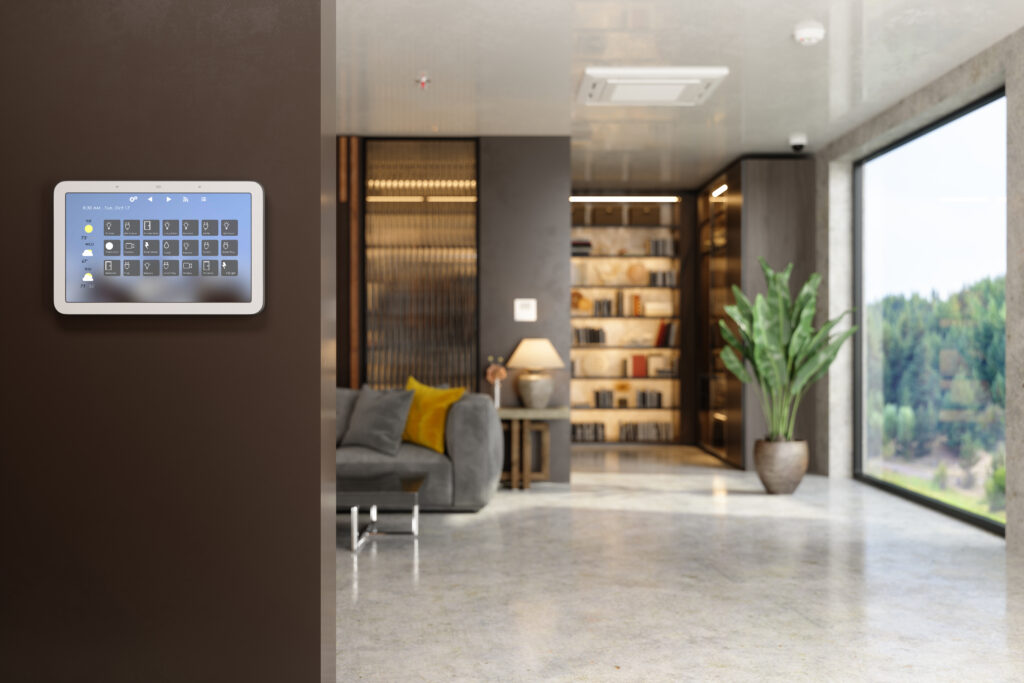
As technology progresses towards robots and flying cars, it has made a few impactful technological home breakthroughs along its journey. HVAC systems have become more advanced, smart, and convenient, ultimately making your life easier. Continue reading our blog to learn about automatic zoning technology.
The Smart Home Rises
Automatic zoning allows a homeowner to control the temperature in each living space or zone in their home. No longer will thermostats read the temperature in the middle of the home, leaving the second story warm and the basement feeling cold, like they have in the past. With automatic zoning, the ductwork controls airflow for each zone, not the whole house, allowing temperatures to be customized. The control panel in the HVAC system receives the temperature from your smartphone or other device and sends the information to the thermostat, changing the temperature instantly.
Benefits of Automatic Zoning
- Zoning makes it possible to regulate temperatures in all rooms of your house, allowing you to save money by keeping rooms you use less often at a warmer temperature.
- Manufacturers have created a smart thermostat that syncs with your Wi-Fi. This technology allows you to adjust your home’s temperature from anywhere.
- HVAC systems are likely to experience less wear if you install a zoning system. Your HVAC unit will rarely run at full capacity when some rooms are requiring less heating or cooling from lack of use.
- Add-on features can be installed when you choose to have automatic zoning such as an air cleaner and a humidifier.
The benefits of automatic zoning are countless. WestAIR can create a comfortable atmosphere for any room in your home. Save on energy bills by installing energy efficient zoning. This smart technology is something we are happy to discuss further with you. Contact us today.
This entry was posted in AC,Air Conditioning,Energy Savings and tagged Automatic zoning, HVAC System, Smart home, Smart Technology, WestAIR
Indoor Air Quality Tips to Help You Breathe Easy This Summer
Posted on by WestAIR Heating & Cooling
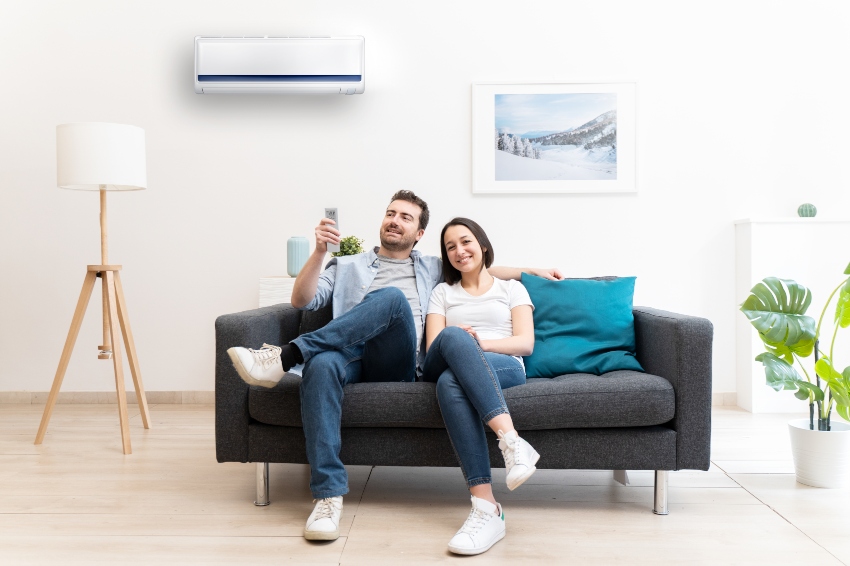
In the hottest summer months, there’s nothing quite like drinking a glass of iced tea and sitting in an air-conditioned room. But that seeming escape can actually be detrimental for your health if you have poor indoor air quality. From headaches, fatigue, and trouble concentrating to irritation of the eyes, nose, and throat, indoor air contaminants have been linked to diseases like asthma. How can you improve the air quality in your home? There are a number of available solutions. We’ve pulled a few of them together here to help you decide which one is right for you. Read on as we discuss indoor air quality tips to help you breathe easy this summer.
Air Exchangers for Fresh, Filtered Outdoor Air
Circulation is critical for good indoor air quality. Stale indoor air can become thick with contaminants and excess humidity, which can lead to mold growth. An air exchanger like the Venmar® Ventilation System, provides your home with a continuous flow of filtered outdoor air, reducing humidity and expelling pollutants from the home.
Take Air Quality a Step Further with an Air Cleaner
With an air cleaner, you can upgrade your existing heating and cooling system to help you improve the air you breathe. These systems capture airborne dust, pollen, and other particles far better than your standard furnace filter, helping eliminate pollutants in the air.
The Power of Ultraviolet Light
UV light technology can go beyond removing airborne particles to eliminating volatile organic compounds (VOCs) and reducing microorganisms. The best part? UV air purification systems like the BreatheCLEAN UV air purifier can be easily installed into existing ductwork with no major changes to your HVAC system.
If you’re looking to breathe easier, the experienced indoor air quality professionals at WestAIR are here to help. See what our customers have to say, and then contact us to schedule a service today!
This entry was posted in AC,Air Conditioning,Health Tips,Indoor Air Quality,Tips and tagged Air cleaner, Air exchanger, Importance of Indoor Air Quality, Indoor air quality, Indoor air quality solutions, Indoor Air Quality Tips, Summer, Summer Cooling, Summer HVAC, Summer HVAC Tips, Ultraviolet Light Air Purification, UV Light Air Purification, UV lights, WestAIR Heating & Cooling
Money-Saving Tips to Keep Your Home Cool This Summer
Posted on by WestAIR Heating & Cooling

The warm weather is almost here, and while the sunshine is more fun for the family, it can also mean an increase in your energy bill. Try these money-saving tips to keep your home cool this summer.
Replace Your Air Filters
A dirty air filter restricts air flow for your home’s HVAC system, which makes it less efficient, ultimately costing more to cool your home. Most air filters last up to three months, but if you have pets or allergies, you’ll want to replace them more often. We advise changing your filters every month, even during cooling season. A dirty or clogged filter is the number one reason for AC failure. Check the recommendation on your air filter’s packaging or install a smart thermostat to tell you when it’s time to swap out your filter.
Service your AC
The start of summer is a great time to make sure your air conditioner is ready to take on the heat. Make sure your condensing unit—the outdoor section of your central AC system—is clear of grass, leaves, pet hair, and other debris. If your system is older, have a professional out to service your air conditioner.
Adjust Your Thermostat
If you’re not home during the day, consider setting your thermostat seven to ten degrees higher. This can save as much as ten percent on your energy bill, according to the U.S. Department of Energy. Can’t remember to make those adjustments? A seven-day programmable thermostat allows separate programming for each day to help you save on your cooling costs.
Consider Zoning
A zoning system takes temperature regulation a step further, separating your home into the living area and the sleeping area. This means you don’t waste energy (and money) cooling parts of the home you aren’t using during the hottest parts of the day.
The money-saving tips can help improve your home’s cooling efficiency this summer. The experienced HVAC professionals at West Air are here to help. Contact us today to schedule an appointment with one of our HVAC experts.
This entry was posted in AC,Air Conditioning,Energy Savings,Tips and tagged air conditioning, money-saving tips, WestAIR, WestAIR Heating & Cooling
4 Spring HVAC Reminders to Prepare for Cooling Season
Posted on by WestAIR Heating & Cooling
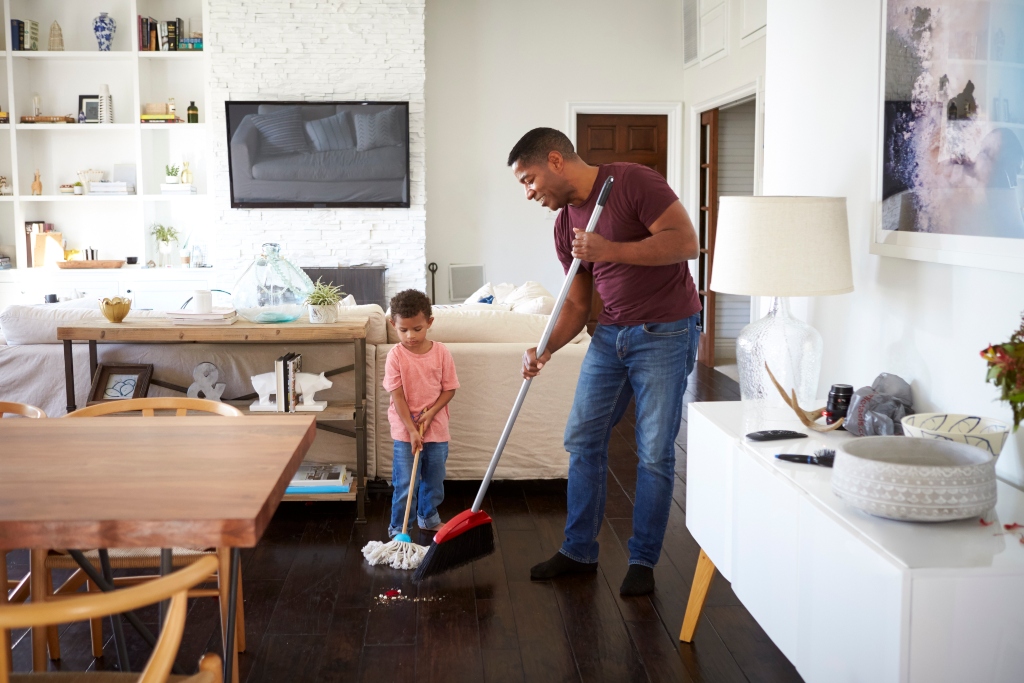
Spring officially began on March 20 and despite some chilly days and “surprise” snowfall, cooling season is on its way. You may be ready for the shift, but is your air conditioner? Use these spring HVAC reminders and tips to help prepare your system for the hot summer days ahead.
Cleaning Tips Around the Home
Whether you’ve already finished your spring cleaning or have yet to bust out the rubber gloves, don’t forget to incorporate your HVAC system into your routine:
- Dust and disinfect floors and hard surfaces around the home. Keeping them clean helps prevent dirt, allergens, and other airborne particles from getting inside your ductwork.
- Clear debris buildup from exhaust fans. After making sure the power is off, wash with soapy water and use a toothbrush to clean dirt and debris off the fan blades.
- Clean windows, blinds, and curtains. That way you can let in fresh air and sunlight without a producing a cloud of built-up dust whenever you open them.
- Dust the blades of your ceiling fans. Similarly, you don’t want dust to fly all over whenever you turn the fan on. And remember to run fans counterclockwise in the summer to blow air straight down and create a windchill effect.
- Clean the grills of floor registers and air vents. Use a vacuum to remove collected dust and debris. For a deeper clean, remove the vent, scrub the individual grill spaces with a rag and butter knife, and then rinse with warm soapy water.
Have your Ductwork Professionally Cleaned
While regular dusting, mopping, vacuuming, and cleaning of the vents and registers helps minimize the amount of debris that gets into your ductwork, there’s no way to prevent it entirely. Duct cleaning helps prevent dust, pollen, and other harmful particles from accumulating and impacting the health of your HVAC system and indoor air quality.
Seal the Home
Don’t let the cool air your HVAC system produces go to waste. Check windows, doors, and exterior walls for cracks and seams that could let indoor air escape and hot, humid outdoor air sneak in. Seal them with caulk to help maintain efficient cooling.
…but Provide Proper Ventilation
Providing fresh air and adequate ventilation are vital to maintaining indoor air quality. Open windows on nice days for natural ventilation and air flow. Consider installing an air exchanger that simultaneously removes stale, recycled indoor air while supplying fresh, filtered air from outside.
Test the System & Schedule Preventative Maintenance
Don’t wait for the first hot, humid day of the year to test your air conditioner. Turn the system on now to check for any issues, and schedule annual preventative maintenance with the local HVAC experts at WestAIR to ensure optimal performance, efficiency, and safety.
With Minnesota’s unpredictable weather, spring can feel like little more than a brief break between the last snowfall and the first hot, humid day of summer. Don’t let the window sneak by without giving your home’s air conditioner some much needed TLC! Use these spring HVAC reminders to help ensure your system is ready to keep your home cool and cozy all season long.
For all your heating and cooling needs, trust the knowledgeable, experienced HVAC professionals at WestAIR. Contact us to learn more about our services.
This entry was posted in AC,Air Conditioning,Cooling,Duct Cleaning,Energy Savings,Health Tips,HVAC Maintenance,Indoor Air Quality,Spring,Tips and tagged Air conditioner, Air conditioner maintenance, Air conditioner tune-up, air conditioning, Annual check-up, Annual service maintenance check, Cooling Season, Cooling Season Prep, Cooling system, Cooling Tips, Duct cleaning, Duct cleaning service, Professional duct cleaning, Spring, Spring Cleaning, Spring Heating and Cooling, Spring HVAC, Spring HVAC Reminders, WestAIR Heating & Cooling
7 Tips for Extending the Lifespan of HVAC Equipment
Posted on by WestAIR Heating & Cooling

When it comes to weather, Minnesota is a place of extremes. Our harsh, bitterly cold winters and hot, humid summer days make a functioning furnace and air conditioner crucial to a comfy home. Follow these tips for extending the lifespan of HVAC equipment to get the most out of your system.
Schedule Preventative Maintenance Twice Annually
Have your system professionally serviced before each heating and cooling season for a thorough tune-up, cleaning, and maintenance service to ensure peak performance and efficiency. Your technician will also catch minor issues to prevent costly repairs later on, as well as help you decide if it’s better to repair or replace.
But don’t wait for maintenance service or a total breakdown to have your system inspected. If you notice strange sounds or smells, decreased efficiency or performance, or any other warning signs, call your local HVAC professionals to diagnose and repair the issue before it gets worse.
Have Ductwork Professionally Cleaned Every Other Year
Dirt, dust, pollen, and other debris naturally settle inside your ductwork over time. This buildup not only impacts airflow and efficiency, but it also becomes a breeding ground for bacteria. As your HVAC unit pumps air to the home, these contaminants get blown out with it and decrease your indoor air quality.
Schedule professional duct cleaning service once every two years to help maintain air quality and reduce stress placed on the system.
Maintain a Clean Air Filter
Clogged filters decrease airflow, forcing the system to work harder and experience a higher level of wear and tear. They’re also the number one cause of breakdowns. Remember to clean or change your HVAC system’s air filter every month.
Take Care of the Condenser Unit
While A/C condenser units are designed to withstand the elements, they’re not invincible. Inspect your condenser for any damage or debris buildup on occasion, especially after severe storms and instances of hail. Additionally, give the unit two to three feet of space to easily and efficiently draw in air. Keep the unit and surrounding space clean and clear of obstructions as well as grass clippings, leaves, branches, dirt, and other debris.
Check the Drainage Pipe Regularly
HVAC systems feature a PVC pipe on the indoor unit that leads outside to drain excess condensation. Serious damage to this outlet line can result in expensive repairs, so inspect yours regularly for blockages, debris, and any other issues. Be sure to do so more frequently in winter due to the potential of ice or snow deposits.
Invest in a Programmable Thermostat
Being strategic with your thermostat can help lower utility bills and stress on your system. However, constantly adjusting the temperature can have the opposite effect. With a programmable thermostat, you can preset temperature and humidity levels over multiple days without worrying about manual adjustments.
Ease Stress on the System in Other Ways
Give your HVAC system a break whenever possible to maximize its performance and useful life. For more information, check out our helpful guides to optimizing HVAC efficiency in the winter and summer.
Heating and cooling systems contribute up to half of a home’s energy consumption, and we rely on them throughout the year in our state. Use this guide to extending the lifespan of HVAC equipment to keep the air in your home clean and comfy for years to come.
Backed by over 30 years of industry experience, locally owned and operated WestAIR has the knowledge and expertise for all your heating, cooling, and indoor air quality needs. Contact us to learn more about our services.
This entry was posted in AC,Air Conditioning,Cooling,Duct Cleaning,Energy Savings,Fall,Furnace,Health Tips,Heating,Humidity,HVAC Maintenance,Indoor Air Quality,Tips,Winter and tagged A/C, A/C maintenance, A/C Tips, Air conditioner maintenance, Air filters, Condenser Unit Maintenance, Duct cleaning, Energy savings, Energy-Saving HVAC Tips, Extending the Lifespan of HVAC Equipment, Furnace Maintenance, Furnace Tips, Homeowner Education, HVAC Education, HVAC Maintenance, HVAC Maintenance Tips, HVAC tips, Preventative Maintenance, Programmable thermostat
Understanding and Controlling Indoor Humidity
Posted on by WestAIR Heating & Cooling

The hottest time of year is upon us, and we all know how uncomfortable Minnesota’s humidity can be. Our home should be a cool, comfy escape on hot summer days. To help, we put together this guide to understanding and controlling indoor humidity.
Understanding the Basics: Humidity Vs. Relative Humidity
Simply put, humidity measures the amount of water vapor in the air. However, since warm air can retain more moisture than cold air, we look at relative humidity (RH): the amount of water vapor present relative to the total amount the air can hold at the given temperature. RH illustrates how the air actually feels and affects our comfort. The ideal RH for a home is typically between 40 and 60 percent.
Methods for Controlling Indoor Humidity
Essentially, high levels of indoor RH occur when excess moisture enters the home but can’t escape. Use these tips for controlling indoor humidity and keep your home cool and cozy this summer.
Run Your Air Conditioner
By replacing warm air with cooler air, A/C systems naturally reduce indoor humidity. Again, cool air retains less moisture, so running your air conditioner helps decrease RH in the home.
Don’t Introduce Extra Moisture to the Air
More moisture means more humidity. Certain everyday activities naturally release moisture in the air and should be altered to control RH:
- Avoid meals that require boiling water, or at least cover the pot whenever possible. Use the kitchen exhaust fan when cooking.
- Take colder, shorter showers to avoid the steam of hot water, and run your exhaust fan during and for 5 to 10 minutes afterwards.
- Hang laundry outside to dry so the evaporated moisture doesn’t get trapped in the home.
Provide Proper Ventilation & Exhaust
Remember, higher humidity happens when moisture can’t escape, so make sure that it can:
- On nice days, open up the windows to let stale, humid air out and fresh air in.
- Change or clean your HVAC system’s filter monthly for optimal cooling and ventilation.
- Ensure laundry, kitchen, and bathroom exhaust fans are clear of dust and debris.
- Schedule an A/C tune-up with your local HVAC specialist to ensure your system runs at peak performance.
Fix Plumbing Leaks
Leaky pipes and fixtures can damage your home and also add moisture to the air, so get them fixed ASAP. Warning signs include water stains on ceilings or walls, wet spots, and irregularly high water bills. You can also wrap exposed pipes with insulators to prevent condensation.
Seal Leaks in Ductwork
Well designed, properly installed ductwork distributes air evenly throughout the home. Leaks create a pressure imbalance and can let humid air in or cold air out. Have your ducts professionally cleaned and inspected to make sure your system circulates air properly.
HVAC Solutions
Humidity can crack or warp wood, promote rot in the home’s structure over time, and increase accumulation of dust and other irritants to asthma and allergy sufferers. Luckily, there are supplemental HVAC solutions to consider if indoor humidity is a big concern:
- Whole house dehumidifiers work in conjunction with your HVAC system to remove excess moisture.
- Portable dehumidifiers can be placed in bathrooms, basements, and other specific locations known to house extra moisture.
- Air exchangers exhaust excess humidity and stale indoor air and deliver filtered outdoor air inside simultaneously.
As we use our homes as a welcome escape from the heat, clean and cool air becomes a must. Use this guide to controlling indoor humidity to keep your family comfy throughout the dog days of summer. And remember to rely on the residential HVAC experts for all your air conditioning and indoor air quality needs.
Contact us today to schedule service and learn more.
This entry was posted in AC,Air Conditioning,Cooling,Duct Cleaning,Health Tips,Indoor Air Quality,Tips and tagged air conditioning, Air filters, Controlling Indoor Humidity, Cooling Mistakes, Cooling Season, Cooling Tips, Duct cleaning, Family Health, Home Cooling, Homeowner Education, Homeowner Tips, Humidity, HVAC Education, HVAC Safety, HVAC tips, Indoor air quality, Indoor humidity, Preventative Maintenance, Summer Cooling, Summer HVAC Tips, Understanding Humidity
Subscribe to Our Blog
With RSS feeds, you don't have to visit our site everyday to keep up to date. Simply subscribe to our blog via RSS or Email and our posts will come to you!
Search Blog Posts
Categories
Archives
- April 2024 (1)
- February 2024 (1)
- January 2024 (1)
- February 2023 (1)
- January 2023 (1)
- December 2022 (1)
- November 2022 (1)
- October 2022 (1)
- September 2022 (1)
- August 2022 (1)
- July 2022 (1)
- June 2022 (1)
- May 2022 (1)
- April 2022 (1)
- March 2022 (1)
- February 2022 (2)
- December 2021 (1)
- November 2021 (1)
- October 2021 (1)
- September 2021 (1)
- August 2021 (1)
- July 2021 (1)
- June 2021 (1)
- May 2021 (1)
- April 2021 (1)
- March 2021 (2)
- January 2021 (1)
- December 2020 (1)
- November 2020 (1)
- October 2020 (1)
- September 2020 (1)
- August 2020 (1)
- July 2020 (1)
- June 2020 (1)
- May 2020 (1)
- April 2020 (1)
- March 2020 (1)
- February 2020 (2)
- November 2019 (1)
- August 2019 (2)
- June 2019 (1)
- May 2019 (1)
- April 2019 (1)
- March 2019 (1)
- February 2019 (1)
- January 2019 (1)
- December 2018 (1)
- November 2018 (1)
- October 2018 (1)
- September 2018 (1)
- August 2018 (2)
- July 2018 (1)
- May 2018 (1)
- April 2018 (1)
- March 2018 (1)
- February 2018 (1)
- January 2018 (1)
- December 2017 (3)
- November 2017 (2)
- October 2017 (2)
- September 2017 (2)
- August 2017 (1)
- July 2017 (2)
- June 2017 (3)
- May 2017 (2)
- January 2017 (4)
- November 2016 (1)
- September 2016 (3)
- July 2016 (2)
- June 2016 (2)
- May 2016 (4)
- April 2016 (1)
- March 2016 (2)
- February 2016 (2)
- January 2016 (1)
- August 2015 (1)
- July 2015 (1)
- June 2015 (3)
- May 2015 (1)
- July 2014 (2)
- June 2014 (1)
- April 2014 (1)
- March 2014 (1)
- February 2014 (2)
- October 2013 (1)
- May 2013 (1)
- March 2013 (1)
- February 2013 (1)
- August 2012 (1)
- July 2012 (2)
- June 2012 (2)
- May 2012 (2)
- March 2012 (1)
- February 2012 (1)
- December 2011 (1)
- November 2011 (1)
- October 2011 (1)
- September 2011 (1)
- August 2011 (1)
- June 2011 (1)
- May 2011 (1)
 Subscribe
Subscribe Subscribe
Subscribe